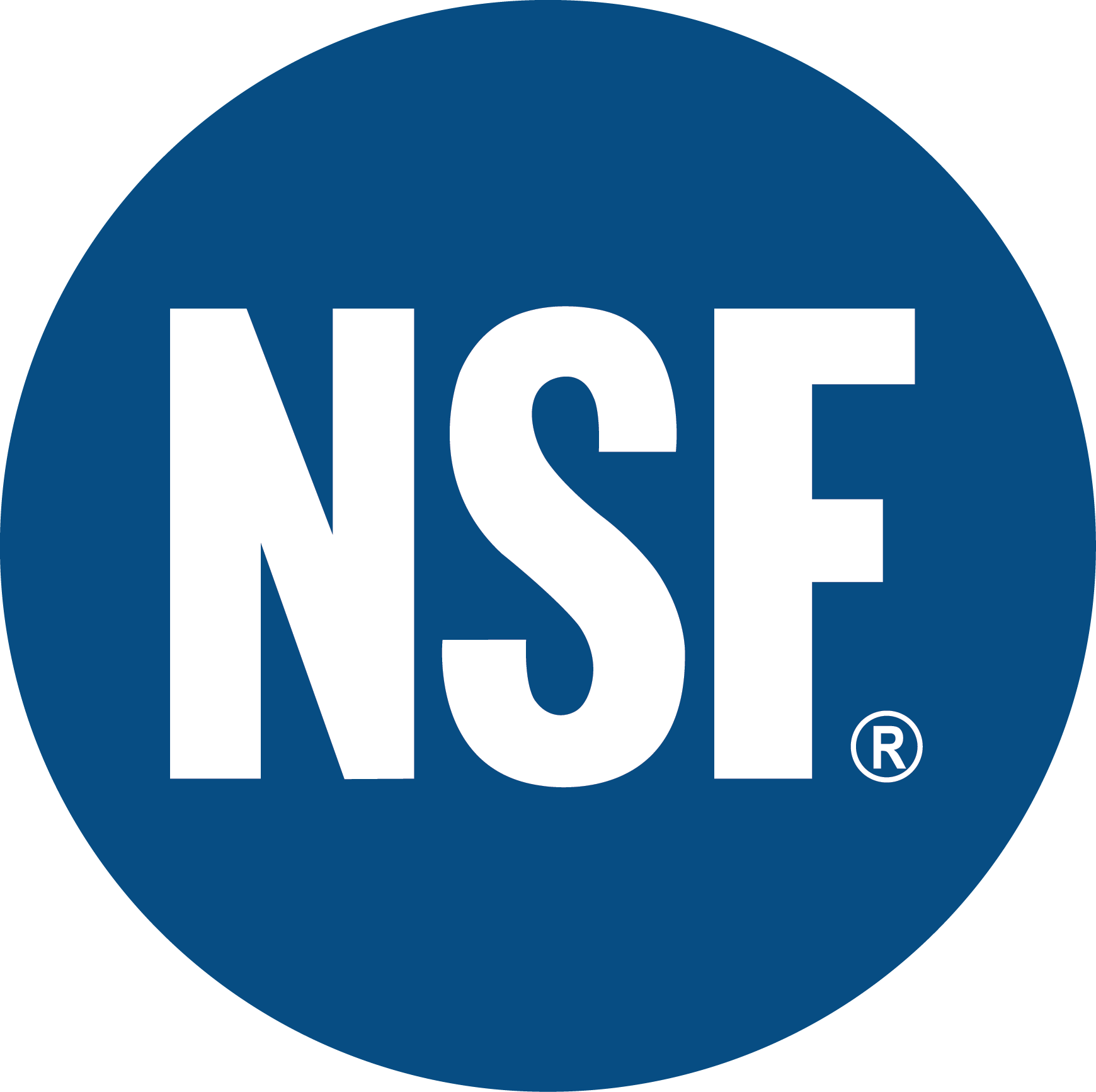Why We Are The Best
Clean drinking water is a pretty big deal.
Everyone should know that proper hydration is important to good health, and clean, safe, healthy water is important for proper hydration.
But finding the best clean drinking water solution can be tough.
Disposable plastic bottled water is bulky, expensive, and wasteful – whether we’re talking about big water-cooler-sized jugs or pallets of individually-packaged water bottles. Filtered water pitchers are ineffective, barely improving the taste of the water, and that’s about it. Reverse osmosis systems are inefficient – bulky, complicated, slow to filter, and limited by their filtered water reservoir.
At Multipure, we understood this over five decades ago. We understood that the best clean water solution would strike the right balance between effectiveness, efficiency, convenience, and cost. That’s why, for over fifty years, Multipure has developed, refined, and leveraged the power of our proprietary solid carbon block filters to give you the cleanest, safest, healthiest water, quickly, conveniently, and affordably.
Think about this: disposable bottled water may appear to be an improvement over regular tap water, but would you open a bottle of water to wash off your fruits and vegetables? Are you pouring out multiple bottles of water to cook your rice, or pasta, or beans? Contaminants in water can affect the food you eat – not just the water you drink.
Filtered water is only useful if it can be used for all aspects of your kitchen.
Likewise with a filtered water pitcher – are you pouring that water pitcher over your fruits and vegetables to clean them off? Are you pouring that water pitcher into your pots or pans to cook your food? And did you know that the carbon granules in a filtered water pitcher are only really effective at treating the chlorine in tap water? The water may taste better and smell better, but that kind of filter is simply not good enough to protect you from things like lead, mercury, pesticides, herbicides, or the dozens of other potentially harmful water contaminants. Filtered water is only useful when it’s actually safe and healthy to drink.
Have you seen a reverse osmosis (RO) system in person? They’re big enough that they take up most of the cabinet space below your sink, and complex enough that you typically need to hire a plumber to install them. And while they can be effective, reverse osmosis is a really slow process. That’s why your average RO system includes a one- to five-gallon water reservoir, so that the cleaner water can sit in there for use after the long filtration process. But guess what? If you need more filtered water than the reservoir holds, you’re out of luck – expect to wait an hour or two to get a usable amount of clean water available. Filtered water is only useful if you can get it when you need it.
Carbon is a great filter medium because it is natural, non-toxic, environmentally friendly, attracts contaminant particles, and can physically trap tiny particles within itself. But a loose collection of activated carbon – granular activated carbon (GAC), used in your typical filtered water pitcher – is ineffective because it does not force the water to stay in contact with the carbon long enough for stronger filter action to occur.
Here’s where Multipure’s
innovation and experience come in.
Multipure recognized the limitations of GAC, and developed our signature solid carbon block filter by building upon the advantages of GAC to make it far more powerful and effective. By combining the right mixture of activated carbon and other filter materials, then pressing them into a densely-compacted block, Multipure created a filter that allowed water to pass through, but forced the water to stay in contact with enough filter surface to vastly improve the filtration performance.
The result is a compact, powerful, and efficient filter that can treat a broad range of harmful contaminants, not just ones that affect the taste and smell of the water. Our filters are much more powerful than filtered water pitchers, provide much cleaner water than bottled water (which in many cases is simply tap water), and work in real-time at the filtered water spout – no need for a filtered water reservoir to be filled.


For over fifty years, we’ve been working to improve your water. When arsenic-V became an issue in drinking water, we made sure to create products designed to deal with arsenic-V. When prescription and over-the-counter drugs became a concern in drinking water, we made sure that our drinking water filters treated them in your water. When bacteria and viruses became a concern in your water, we developed a filter to treat bacteria, viruses, and parasites in your drinking water – without power requirements, and without adding additional chemicals into the water. With the “forever chemicals” – PFOA and PFOS – currently a concern in your water, we made sure we had drinking water filters to protect your water from those chemicals.
Multipure has led the way in drinking water filtration for over half a century.
We will continue to lead the way, protecting your homes and families by ensuring your water is safe from contaminants of today and tomorrow. With a Multipure drinking water system, your home and family get cleaner, healthier, tastier water whenever you need it, right at your kitchen sink. Multipure filtered water is ideal for all your family’s needs, whether used for drinking, washing and preparing foods, or cooking. We are driven to continuously improve our drinking water filters and systems, so that we are always here to protect your water and your health.
Multipure means superior quality, innovation, and performance. Multipure means cleaner, tastier, and healthier water. With a Multipure drinking water system, you always have clean drinking water at hand.
What Sets Multipure Apart
When it comes to drinking water treatment, point-of-use filtration devices are certified by NSF under a handful of standards, the most important of which are:
- NSF/ANSI Standard 42: Aesthetic Effects – contaminants that can negatively affect the taste, odor, or appearance of the water, e.g., chlorine, chloramine, or particulate matter.
- NSF/ANSI Standard 53: Health Effects – contaminants that can negatively affect health when ingested with the water, e.g., asbestos, lead, arsenic, PFOAs, microcystin, etc.
- NSF/ANSI Standard 401: Emerging Compounds and Incidental Contaminants – contaminants of public concern whose long-term health effects are not yet fully determined, e.g., prescription drugs, over-the-counter drugs, DEET, etc.
- NSF Protocol P231: Microbiological Purifier – a filter certification for the purification of microbiological contaminants, e.g., bacteria, viruses, and live cysts.

NSF certification is not something that every water filtration company is willing to put the effort toward. Any company can say their activated carbon block filter products meet NSF standards. But unless they can show official NSF certification, you cannot trust with absolute certainty that their activated carbon water purification system meets their claims with respect to contaminant reduction, and you cannot trust with absolute certainty that their water filtration system is not adding any harmful contaminants or chemicals to the water.
NSF certification requires continuous inspection and testing to make sure the certified company adheres to the highest standards of quality with respect to contaminant reduction. Thanks to NSF certification, Multipure activated carbon block water treatment products are ones you absolutely know you can trust. That is the Multipure difference.
Multipure is the industry leader because it is a pioneer in drinking water treatment, and it possesses the integrity and credibility due to intensive internal quality assurance confirmed by the rigorous scrutiny of NSF certification.

